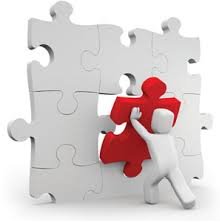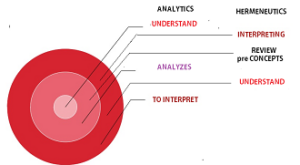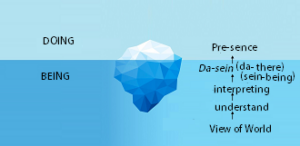
Arquivo para a ‘Método e Verdade Científica’ Categoria
A Century of Life: Edgar Morin
Today (08/06/2021) the French philosopher, educator, historian and geographer Edgar Morin, born in Paris as Edgar Nahoum, adopted the code name Morin in the French resistance.
historian and geographer Edgar Morin, born in Paris as Edgar Nahoum, adopted the code name Morin in the French resistance.
The French newspaper Liberation, published on Thursday (3/06) some excerpts of its new book that will be released this week in France, “lessons of a century of life” (“Leçons d’un siècle de vie”, publisher Denoel), with some excerpts from the book, calling him the grandfather of all Frenchmen.
In the book Morin says that when he is no longer alive, he hopes that people will be able to “love each other and themselves, instead of continuing in this western regression marked by neo-totalitarianism in the making, and he does not fail to mention China.
When the world closes, and the identity issue becomes relevant, as it divides peoples, Morin, reflecting on his own origins, highlighted in his book, according to Liberation: “Everyone has the identity of their family, of their village or city, that of your province or ethnicity, that of your country, and the largest of your continent. Each one has a complex identity, that is, we are unique and at the same time plural”, it is not just a matter of “tolerating” but of “loving” the Other.
He warns that “human history is relatively intelligible a posteriori, but always unpredictable a priori”, recalls the 1929 crisis, the rise of Hitler and Nazism, the disintegration of the former Soviet Union and the attack on the World Trade Center twin towers , his reflections on what he called “Stalinia”, about which, according to Liberation, he wrote in his book: “My stay of six years in the Stalinist universe educated me on the powers of illusion, error and historical lies”.
However, he is far from being thought of as a conservative or even a reformer, he always dreamed of a structural change in humanity, which must start from a change in mentality, thought and culture, and also reflects on populism and religious absolutism.
Let’s wait for the book, as always, it will bring new reflections, perhaps even Morin’s confessions.
In Brasilia, the Center for Sustainable Development of the University of Brasilia (CDS/UnB) in Brasilia will also launch a book with the 15 best articles on Edgar Morin, already selected, in partnership with SESC/SP, supported by the Regional Chair of Complejidad y Condición Humana de la Universidad CLAEH (Uruguay) (the picture used) and EHESS/CNRS where Morin is an emeritus researcher.
At 100 years old, he still reveals a lucidity unrivaled at this age, and a unique vitality and wisdom, Félicitations Morin.
The whole, the part and the Being
It was from this theorization of the whole that Werner Heisenberg started the quantum principle, when he formulated his theory there was no answer from scientific experience, which in itself already contests empiricism, and it was a “theory” which in itself contests that reality is practical, but it was the first attempt, happy because later Physics and Science would come to their rescue, starting from the whole and not from the parts, as proposed by the Cartesian method.
started the quantum principle, when he formulated his theory there was no answer from scientific experience, which in itself already contests empiricism, and it was a “theory” which in itself contests that reality is practical, but it was the first attempt, happy because later Physics and Science would come to their rescue, starting from the whole and not from the parts, as proposed by the Cartesian method.
The truth of physics, however, changes over time, new discoveries about new discoveries of subparticles (among them the Higgs boson), the 7 states of matter (it joins the three widely known, the plasma (light liquid), Bose-Einstein states, fermionic gas and polarations superfluid, and there may be an eighth, so there is already a paraphysics.
But there is already, and there always was, metaphysics (later physics), modernity wanted to reduce it to subjectivity (something proper to the subject, but only stuck in his mind), the current ontology, the result of hermeneutics and phenomenology, it recovers by questioning the “veiling” of being, and proposes a clearing, the crisis of humanism is nothing other than this crisis.
The philosophical question about everything is “because there is everything and not nothing” and this supposes ex-sistence, as the question about the whole could be, it is not asked philosophically but only theologically, if there is “everything” which it is the intention that justifies the ex-sistence of everything ?.
Phenomenology recovers intentionality, a subcategory of consciousness in medieval philosophy, with a sense of being directed at something, or of being about something, thus ontological.
Husserl recovered it by directing it to an object, an essential category in modern idealism, but directing it to something that can be imaginary or real, thus including metaphysics and Being.
So the fantastic thing about the existence of everything is not just its existence, but the intention for the Whole.
What is the whole and if it exists is Being, so only He can Be beyond the whole universe that is locus, since in modern physics time is an abstraction, says Italian physicist Carlo Rovelli, who is among the most respected.
F or Christians, the entrance of God into the physis happens with Jesus, says the passage that Jesus asks who they say is “the son of man” (He thus speaks of one of his two natures: divine and human), and he goes to ask the apostles the who they say He is.
The apostles respond (Mt 16:14-16), they replied: “Some say it is John the Baptist; others that it is Elijah; still others, that it is Jeremiah or one of the prophets”. Then Jesus asked them, “And you, who do you say that I am?” Simon Peter replied, “You are the Messiah, the Son of the living God,” and Jesus says he is happy because it was God who revealed him.
Between Being, Nothing and interiority
The first ontological sensation, faced with rationality, was an attempt to confine Being in its subjectivity (which comes from the subject) in order to make the relationship with the Being an “objectivity” that exists outside of Being (for modernity outside the subject).
attempt to confine Being in its subjectivity (which comes from the subject) in order to make the relationship with the Being an “objectivity” that exists outside of Being (for modernity outside the subject).
As both deny ex-sistence, here it means ex “to leave” and the verb sistere, “to be placed”, so to exist is what is placed outside the being, more than subjectivity is the very essence of Being, beyond of the imaginary and the symbolic, of the imaginary because it is unrepresentable and the symbolic because it means the non-meaning, but there are all essence and existence of Being.
The conception of denying the existence of being, which has to deny even the reason that conceives it, comes from Gorgias (485-380 BC), a sophist whom Plato refuted in a book, for him there was no truth and it can be said that it is the distant principle for relativism.
The existence and reality of Being, although veiled, lies in the possibility of a clearing, on which depends the opening of Dasein, its relationship with the physis (nature in the general sense of the Greeks) and for which the veil that covers the being, and so the relationship with being and interiority.
If we see ourselves only as we see in a mirror, we see the image of our being, if we see as we are, it means that we are able to see beyond it our interiority, our complexity and from them how we relate to the whole of which we are part.
The projection on the exteriority and denial of interiority is part of the emptying of Being in modernity, we are what we do and it doesn’t really matter what we actually are interiorly.
From this emptying, nihilism (nihil – nothing) was born, solipsism (the I and my sensations) and, in a way, subjectivism (considerations only about what is personal, an empty interiority) and a good part of theorizations values in the infernal dichotomies (subject x object) and (nature x culture).
In a more current interpretation, in the Society of Tiredness Byung Chul Han speaks of interiority, in another book The Society of Transparency he states: “today the world is not a theater in which actions and feelings are represented and read, but a market where they are exposed , sells and consumes intimacies” (HAN, 2017, p. 80).
Han, Byung-Chul (2017). Transparency Society. Enio Paulo Giachini. Brazil: Petrópolis, Vozes, 2017.
From language to being
Language as speech and rhetoric is just what is externalized, but if thought of as ontology, it is the opening (Erschlossenheit) from the silent appropriation of the self, as Heidegger thought of Being and Time, whether the opening (offenheit) is thought of as clearing of being (lichtung des Seins), the one used by thinkers and poets, and which shows itself in the measure of its silent correspondence as being, expressed in Letter on Humanism.
thought of as ontology, it is the opening (Erschlossenheit) from the silent appropriation of the self, as Heidegger thought of Being and Time, whether the opening (offenheit) is thought of as clearing of being (lichtung des Seins), the one used by thinkers and poets, and which shows itself in the measure of its silent correspondence as being, expressed in Letter on Humanism.
In this text, he writes: “Destiny appropriates itself as a clearing of the Being, which it is, as a clearing. It is the clearing that grants the being’s proximity. In this proximity, in the clearing of Da Lugar, the man lives as a former caretaker, without him being able to experience and assume that dwelling today” (Heidegger, 1967, p. 61)
In general terms, language is a vehicle for the expression of something internal to man, that is, a bridge that links the inside and outside of man, such a way of speaking is thought of as an activity that takes place in which man is the very medium, that’s why there is silence before.
But according to the ontological conception of language, it is not language that belongs to man, but rather man himself conceived ontologically as a resolute being-toward-death or ontologically being that responds as mortal to the silent request of Being.
In more simplistic terms, this is the difference between the being that “has” a language, in the sense of the ability to speak, and the ontological conception that thinks man as “being” through being possessed of the ability to speak, the language here is not just the transmission of information, but the way in which human existence itself manifests.
In this context, communication begins with silence, an emptiness is needed, an epoché in communication, which presupposes an Other who will be a recipient, is not thus a receiver, but a destination of his speech, and this is the way in which human existence itself manifests. .
Thus for Heidegger, but also for Niklas Luhmann, it would be necessary to review the entire theory of Communication, since receiver and transmitter are themselves the non-human environment, and do not “replace” man, they cannot exist or have a relationship as if If man were something accessory, there is all the hallucination of the current Artificial Intelligence, putting receiver and transmitter in the place of source and destination, it would be necessary to foresee a “clearing” of the being “outside” of Being
For this reason, the clearing is internal, we have already posted in another opportunity what Heidegger affirms in his magnum work Being and Time: “Insofar as the being is in force from the aletheia, the self-unveiling emerging belongs to him. We call this the action of self-enlightenment and enlightenment, the clearing” (cf. Being and Time).
HEIDEGGER, Martin. Carta sobre o Humanismo (Letter on humanism). Brazil, Rio de Janeiro: Tempo Brasileiro, 1967, p. 61.
The Delta variant and suspected vaccination
A new variation of the Delta virus originated in India has appeared and is already spreading, called Delta Plus, the virus is more lethal and there are cases in several countries around the world, in Brazil a pregnant woman is the first reported case, she was 42 years old and died within days after contagion.
appeared and is already spreading, called Delta Plus, the virus is more lethal and there are cases in several countries around the world, in Brazil a pregnant woman is the first reported case, she was 42 years old and died within days after contagion.
The growth of 30.6% of infections and 17.2% of deaths in Chile raised suspicions about the vaccination with the use of CoronaVac, social media media spread this news, since there 90% of the vaccination was done with this vaccine and Chile was an example until recently and there is still no Delta variant.
According to news reported by various press information centers (among them the AFP) this correlation is not true because the number of deaths is not proportional to the infection, and among those infected and dead are mostly not vaccinated, said Chilean doctor Vivian L Farias.
Another increase was in Russia, 20,000 new cases, with 7,916 in Moscow, the highest number of confirmed cases in a single day since January 24, when vaccination had not started. in the country, new restrictive measures are being taken.
The big problem there is also the distrust of the population, there are too many vaccines and not everyone is looking for vaccination, the restaurants are thinking of serving only vaccinated people and other measures can be taken in this regard.
Vaccination in Brazil will reach 70 million people vaccinated with the first dose, the Jannsen vaccine is starting to arrive in the country, it only needs one dose, it is highly effective and in Belo Horizonte the first recipients were homeless people, Pfizer sent more 936 thousand doses and reaches 2.4 million doses, 6 thousand liters of inputs for CoronaVac arrived in Brazil, giving 10 million doses.
In June, in the first 24 days, the average vaccination per day was 1 million doses, but because of the 2nd increase in demand. dose of AstraZeneca in July, it has a space of 12 weeks from the first dose, the vaccination may suffer problems, it is necessary to pay attention to this aspect.
As of June 20, the Ministry of Health had distributed 46.6 million doses of AstraZeneca for the first application (source uol), however, from July onwards, an equal number of doses plus those who will receive the first dose would be necessary. it would be necessary to almost double the manufacture over 21.3 million doses are the calculations of health agents.
The concern of the World Health Organization with the new Delta variant, which is already in 85 countries, is the fear that this new strain will be able to modify itself to the point of circumventing the prevention, treatment and vaccine measures available, the WHO president himself emphasized this fact (various press agencies, in the USA, news in CNBC and others).
The hermeneutic circle and the metaphor
We are betrayed when we think we know and we are still in the initial stage of interpretation, the one that has not yet started a period process, to put our preconceptions in parentheses and start a real dialogue.
initial stage of interpretation, the one that has not yet started a period process, to put our preconceptions in parentheses and start a real dialogue.
Metaphor helps us to bring, using poetic language, a relationship of belonging, to bring the world to poetry and to bring poetry to the world, because the poem projects a world in its ontological dimension, a reality that lies between the seeing as of the metaphor itself to be.
In addition to this function in the scope of semantic innovation, the unveiling of deeper reality, for example, explaining issues that are complex in order to allow this belonging, this proximity, is the function, for example, of parables, metonymy and synecdoche.
Examples of more marked parables are the biblical ones, associating the Kingdom of God with seeds that grow unnoticed, or with the mustard seed, a tiny seed that becomes a tree, this to say that there is a life-giving force in man, and in all men.
However, metaphor, through the use of figurative language, always runs the risk of remaining on the surface.
We exemplified last week the biblical passage in which Jesus went to the seaside work of Galilee and a threat threatens the boat and Jesus calms the storm (Mark 4: 35-41), but the subtlety of this passage is the metaphorical meanings of going the other bank and the storm itself.
Needed to explain deeper things and questioned the disciples fear of storms, and goes to the other side, meaning a more direct moment with the apostles, much of the analytical exegesis (see previous post) is fixed on an immediate understanding that go to the other shore means changing the route, when in fact beyond resting (Jesus slept in the storm), as deeper realities were explained directly to the apostles.
This is proven if we verify that later Jesus returns “to the other bank” where he again encounters a crowd (Mk 5:21-43), and in this crowd he is beyond an unknown woman who touches the master’s robe and is cured of a hemorrhage of 12 years old, there is a synagogue chief named Jairus.
Jairus had the daughter in the last few years, and while he was with Jesus he asked him to lay hands on his daughter, friends of Jairus arrived, who said that she died and Jesus says that she “only sleeps”, goes to Jairus’ house and performs the miracle pronouncing the words “Talitá cum”, the girl gets up.
This subtlety, an ordinary person and a synagogue leader, shows very clearly that in the “crowd” there are also religious authorities who want signs (the Jews want signs and the Greeks wisdom) and so the metaphor is complemented with “signs” and a “wisdom” inherent in Jesus.
What is understanding
Understanding has become in the Western analytic structure a vicious circle that tends only to repeat what it considers to be true starting from some historical aphorism, what Gadamer calls romantic historicism in his criticism of Dilthey.
vicious circle that tends only to repeat what it considers to be true starting from some historical aphorism, what Gadamer calls romantic historicism in his criticism of Dilthey.
The forgetting of being ignores that the hermeneutic circle that goes from interpretation to a new understanding is the very structure of a new sense, a sense of existence, which is in Being.
Thus, the circularity of understanding is not primarily a logical requirement, based on an A or B method, but the ontological unfolding itself: “Heidegger’s hermeneutic reflection has its high point not in the fact that it demonstrates that a circle is present here, but a circle this has a positive ontological meaning” (GADAMER, 2013, p. 355).
Heidegger (2014), in his magna work Ser e Tempo, elaborated a hermeneutics of facticity based on the temporal analysis of human existence (Dasein), here facticity is the way of being in his Dasein that finds, in temporal existence, the possibility of revelation, of clearing:
“The structure of temporality appears as well as the ontological determination of subjectivity. But she was more than that. Heidegger’s thesis was that being itself is time” (Gadamer, 203, p. 345), here is the deepest essence of Heidegger’s work, which points to the hermeneutic circle:
“The decisive thing is not to leave the circle, but to enter it correctly. This circle of understanding is not an ordinary circle, in which any mode of knowledge moves, but it is the expression of the existential structure-of-previousness of Dasein itself. The circle must not be degraded into vitiosum nor be tolerated either. It shelters a positive possibility of the most original knowledge, a possibility that can only be truly realized in an authentic way, if the interpretation understands that its first, constant and last task consists in not letting the previous, the previous seeing and the preconception is given to it by occurrences and popular concepts” (Heidegger, 2014, p.433), but to address the same things.
Understanding seen in this way may seem too philosophical or a theorization about thinking, it is not, because, even in the oblivion of Being, the current frail structure of thought, this is the learning process that involves since the learning of language by a child even the most elaborate methods of discovery and innovation, or are just repetition of something already done, and thus without facticity, as it is mere repetition.
GADAMER, H-G. (2013) Truth and method Flávio Paulo Meurer, revision of the translation by Enio Paulo Giachini. 13. ed. Petropolis: Vozes; Bragança Paulista: São Francisco University Publisher, 2013.
HEIDEGGER, M. (2014) Ser e tempo Translation, organization, previous note, attachments and notes by Fausto Castilho. Campinas, SP: Publisher of Unicamp; Petrópolis, RJ: Editora Vozes, 2014.
The knowledge and doing
The society we live in is a performance society, as  Byung Chul Han calls it, who did his doctorate at Heidegger, it is a society of doing, but not of knowing how to do.
Byung Chul Han calls it, who did his doctorate at Heidegger, it is a society of doing, but not of knowing how to do.
Remembering “old theorists”, deifying ancient theories that had a determined temporal functioning, constitutes the setback and crisis of philosophy, not of thought, because man as a Being is capable of unveiling and discovering, because there is a forgetfulness of being.
Knowledge not closed in logic, with openness and possibility of new discoveries is the constitutive movement of time, there is not something fully understood and finished, it is constitutive of what happens in time, and it is subject to history, it is knowledge practical and of life, a Lebenswelt as Husserl called him.
Heidegger started from there with the direct influence of Husserl, the meaning of his Phenomenology supposes this opening for seeing things as they manifest themselves, the principle of knowledge.
Thus, there is not something understood, finished, what there is is a comprehensibility in a constant becoming, implying practical knowledge, a know-how that is more than the objective of science, it must be the foundation of every comprehensive act as one that seeks to know.
The essential opening is not for the hermeneutic consciousness as seen by Heidegger a primarily rational act, it is an affective disposition, one of the structural existences of the being-there, it is shown that understanding is always an affective understanding, in the sense of “affecting”.
Interpretation follows affection, but what is interpreting here if not revisions and elaborations of meaning, set in motion, thus interpretation is for Heidegger:
“The interpretation of something as something is essentially based on having-prior, seeing-prior and concept-prior. Interpretation is never an unassuming apprehension of something previously given […]” (HEIDEGGER, 2014, p. 427).
One of Heidegger’s central philosophical problems is the question about the possibilities of language, it is from this that the Being elaborates its worldview, from which it cannot escape, it enables us to understand the world, it elaborates the being-in -world.
Being in the world that would imply know-how depends on the worldview, impoverished and obscured by performance, the demand for efficiency and poor articulation with time.
HEIDEGGER, M. Ser e tempo (Being and time) Translation, organization, previous note, attachments and notes by Fausto Castilho. Campinas, SP: Publisher of Unicamp; Petrópolis, RJ: Editora Vozes, 2014.
Anguish and fear of existence
The constitutive feature of Dasein, in Heidegger, goes beyond the psychological and ontic phenomenon, not being something that refers only to a being or something given, it refers to the totality of being as a being-in-the-world, that is, its true dimension ontological, in it the anguish of Being is explained.
the psychological and ontic phenomenon, not being something that refers only to a being or something given, it refers to the totality of being as a being-in-the-world, that is, its true dimension ontological, in it the anguish of Being is explained.
The category emerged with Kierkegaard but for him anguish reveals our finite being, the nothingness of our existence in the face of God’s infinity, due to its eternal character, while Heidegger does not think only as an ontological category, making it just a phenomenon of finitude human.
Stuck with human finitude, Heidegger finds the difference between anguish and fear (furcht), but in the work Being and time, fear is also a fundamental existence through which man finds himself in the world (Heidegger, 1989) and this makes the anguish a mild stage.
Fear, on the other hand, constitutes a strong anima disposition for the author [Befindlichkeit] it is it that reminds us of something we fear and with this the whole of the world manifests, in its strangeness and amazement, it is what happens before we can perform an act knowledge of the world.
There is in it a force to reveal the world, even if at first it is just an escape, in it, for example, joy or happiness, explains the author are very transitory and less striking, this being-there is cast [geworfen] in the middle to states of mind, able to support the weight of existence, and in it “Humour makes manifest ‘how we feel’. In this ‘how we feel’, being willing brings the Being in its being-there” (HEIDEGGER, 1986, p. 134).
More precisely, or more in line with Heidegger’s thought, fear is a central disposition in our existence because it manifests the world in the actor of being-there from itself, even though man is the theme The aim of Heidegger and Kierkegaard, the ultimate address of both is fear not as an object outside himself, but rather itself: man only fears for something determined because he is ultimately affected and interested.
I digress because being “outside” to the contemporary world, Byung Chull Han and Hanna Arendt have taken up in a different way the “being inside” in the “contemplative vitta”, in Heidegger fear turns to the one who fears and not to the one who fears , in Kierkegaard the fear is God, but already in the period of idealism projected onto the world, not as a Being “outside”
What is important in Heidegger’s discourse is that it manages to establish three forms of fear: the one that [wofür] we fear something, that which threatens us (the difficulties of co-presence), the very fear [fürchten] as such, which opens up to us the world (Sloterdijk’s spheres help this reflection), and, and the reason [worum] we fear, which is our own being-there.
Finally, fear can have variations: it can be what’s frightening; it can be horror and also disappointment” (Heidegger, 1986, p.142), but the difference between fear and fear would help to better separate Heidegger’s category from Kierkegaard, that fear is of something “greater”.
HEIDEGGER, M. (1989) Ser e Tempo Traduçăo de Márcia de Sá Cavalcanti. Petrópolis: Vozes.
The being in its authenticity
Heidegger’s incursion into what social life is is that it is  governed by an obscure notion of what coexistence is, where there are no subjects but an empire of the impersonal, of the empire that the translation into Portuguese is very good, empire of “we” is a truncated sociability, it is not just individualism, but a place where neither the “I” nor the “we” are distinguished.
governed by an obscure notion of what coexistence is, where there are no subjects but an empire of the impersonal, of the empire that the translation into Portuguese is very good, empire of “we” is a truncated sociability, it is not just individualism, but a place where neither the “I” nor the “we” are distinguished.
This individual space is the one that levels everything down, a loss of Dasein in the open space of “public opinion” (Öffentlichkeit]), a truncated sociability, even us does not include the Other.
In this being there of Dasein to what extent he deals with other people in his daily environment, for this Heidegger takes a step in the determination of existential analytic, which is to answer how the world opens to Dasein, regardless of whether it is the world of things or of men, this can be understood by how he sees the opening to the world.
He sees it as a first and fundamental opening in a triple way: the disposition, the understanding and the interpretation, understanding that this makes him involved with the world.
So first the human being is taken by states of the soul that unreflectively open the world to him, usually through a certain deviation, a disposition, he understands the world not as a theory or concepts, but as Dasein itself is understood in a situation.
Thus disposition becomes understanding, but it is not man who understands the world, but the world understands man in a totalizing way, where the whole human being is under-stood (in sense of under-pres) and this refers to the concept of project (Entwurf) in an essential sense: it is designed in the world.
This project gives man the possibility of interpretation, and only then manages to translate the world into speech and language, considering that the proposition and the utterance always imply a later moment in the existence of Dasein.
It is these openings to the world in speech and language, however, that must take into account the proposition and utterance as implying a moment, always later, in the existence of Dasein, but the tendency to cover up in Dasein is always strong so that it becomes free.
This fundamental trait of concealment and escape from oneself asserts itself and determines the being-in-the-world of the being-there (Heidegger, 1989) raises the question of the possibility of the being-there leaving its inauthenticity.
HEIDEGGER, M. (1989) Ser e Tempo Translation by Márcia de Sá Cavalcanti. Petropolis: Vozes.

